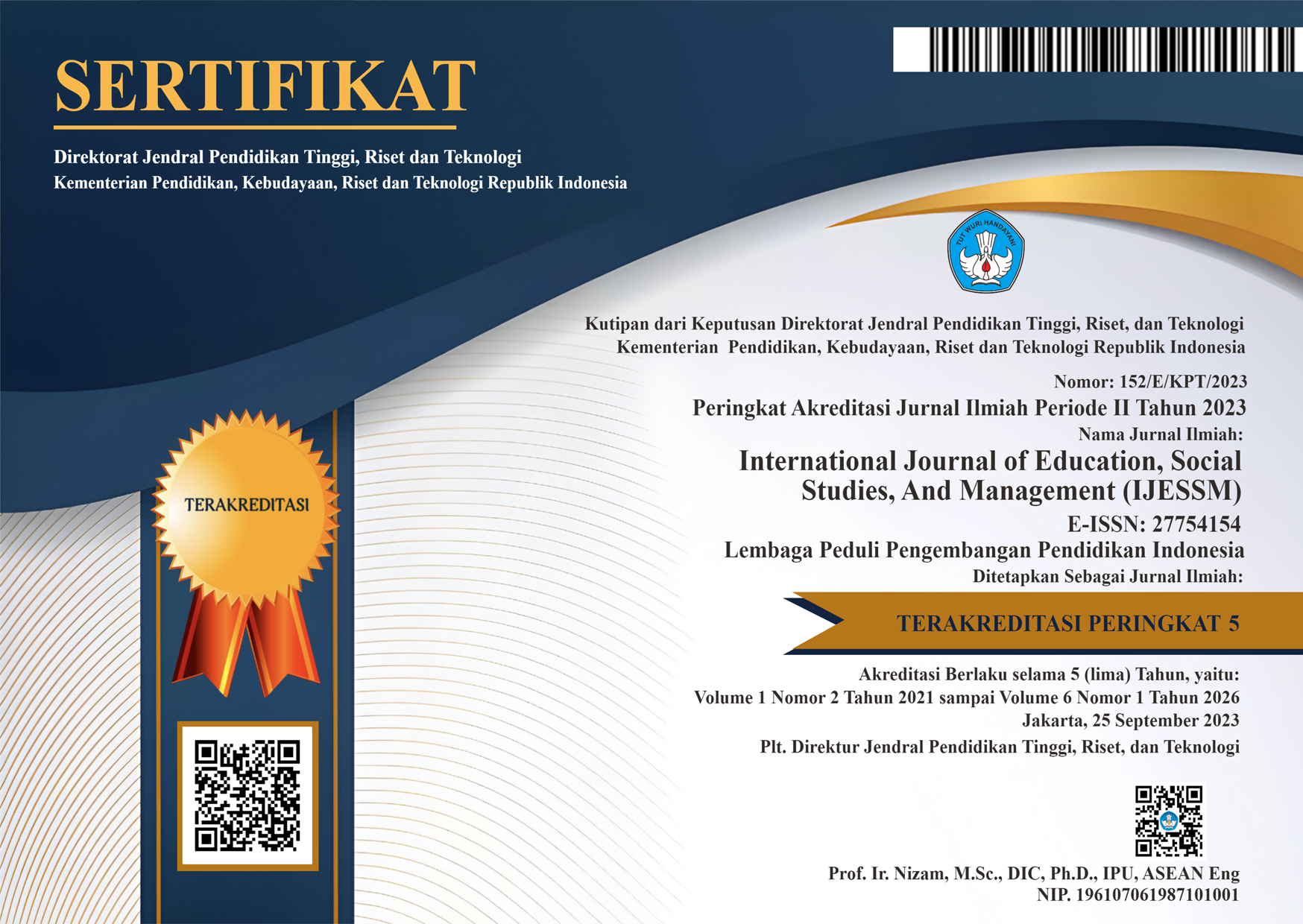Analysis of Philosophical, Psychological, and Sociological Foundations in the Development of Islamic Religious Education Curriculum at MtsS Fahmussalam Al-Aziziyah
DOI:
https://doi.org/10.52121/ijessm.v5i3.861Keywords:
Islamic Religious Education Curriculum, Philosophical Basis, Psychological Basis, Sociological BasisAbstract
This study aims to analyze the implementation of philosophical, psychological, and sociological foundations in the development of the Islamic Education (PAI) curriculum at MTsS Fahmussalam al-Aziziyah and its implications for curriculum effectiveness. These three foundations are essential elements in designing a holistic and contextual curriculum. The study employed a qualitative descriptive approach using observation, interviews, and document analysis as data collection techniques. The findings reveal that the philosophical foundation has been conceptually integrated into the curriculum objectives; however, its practical application remains limited and has not yet fully shaped the students’ internalization of values. The psychological foundation has begun to be considered through learning approaches that take into account students’ developmental characteristics, although there is still a need to strengthen the alignment of strategies with learners’ needs. Meanwhile, the sociological foundation is visible through community-based religious activities but is not yet fully embedded in the curriculum content to address contemporary social issues. These three foundations significantly influence the effectiveness of curriculum development. A curriculum that is not holistically grounded in these dimensions risks losing its ideological direction, social relevance, and pedagogical meaning. Therefore, the development of the PAI curriculum should be more integrative, reflective, and responsive to students’ development and the dynamic challenges of the surrounding society.
Downloads
Published
How to Cite
Issue
Section
License
Copyright (c) 2025 Muhammad, Nur Khairani

This work is licensed under a Creative Commons Attribution 4.0 International License.

















